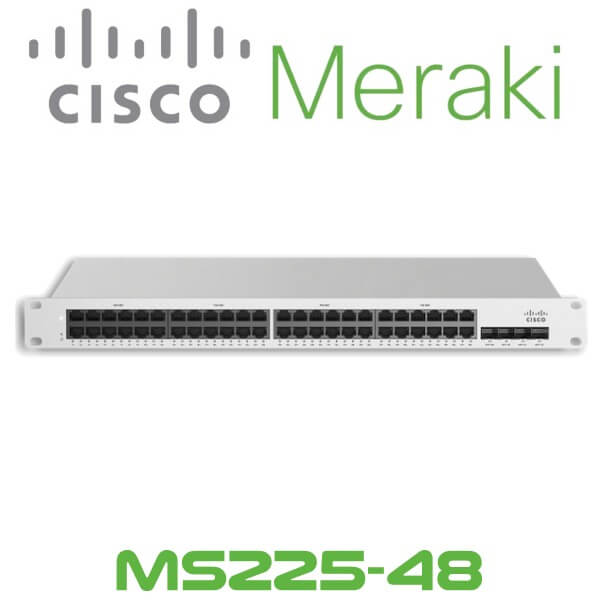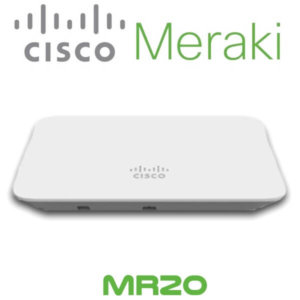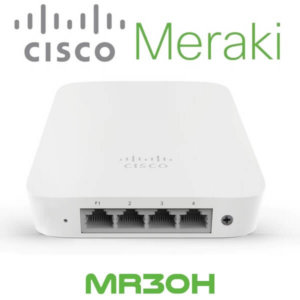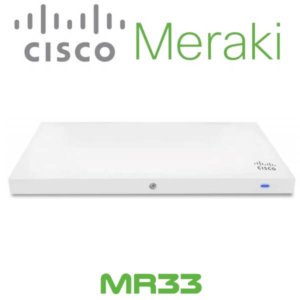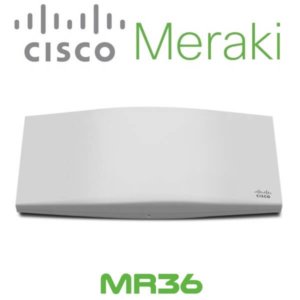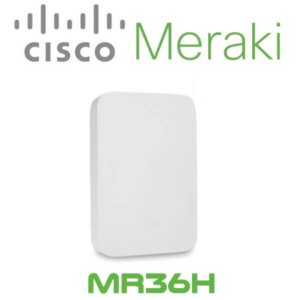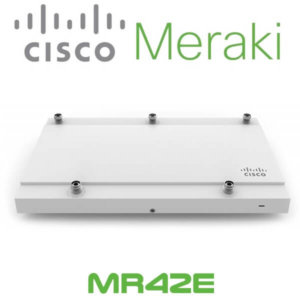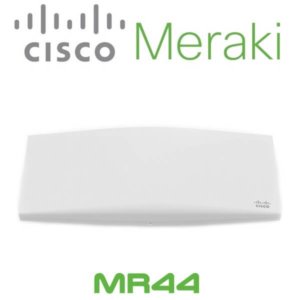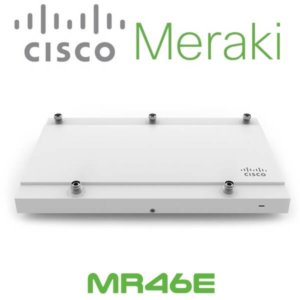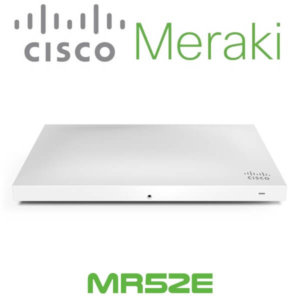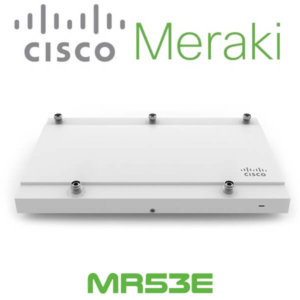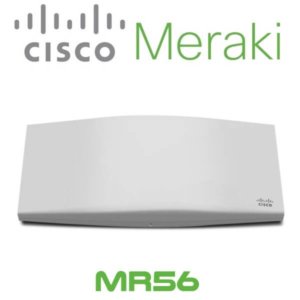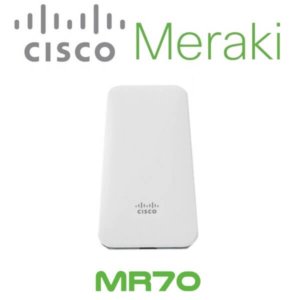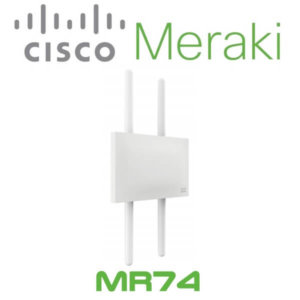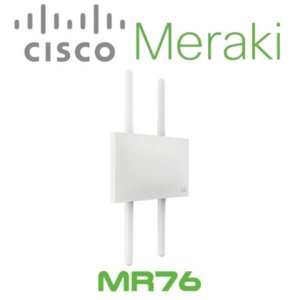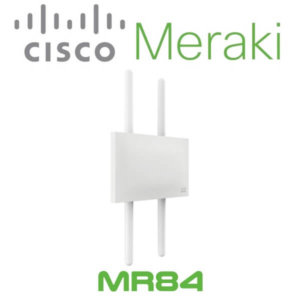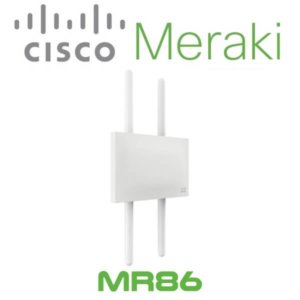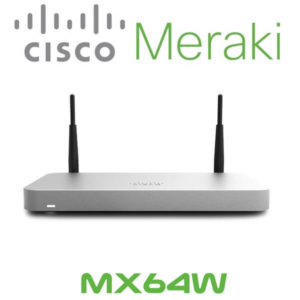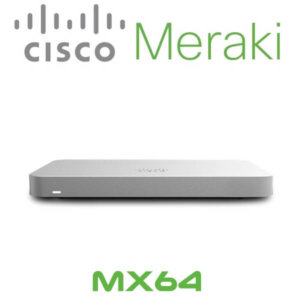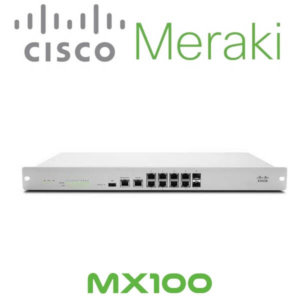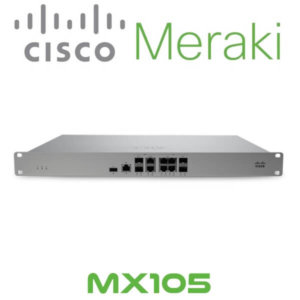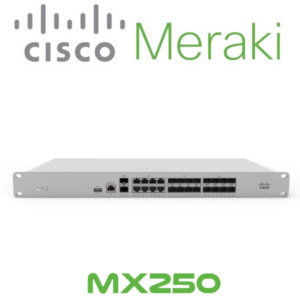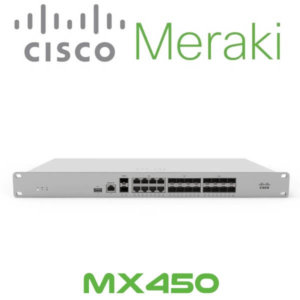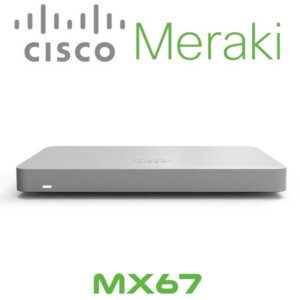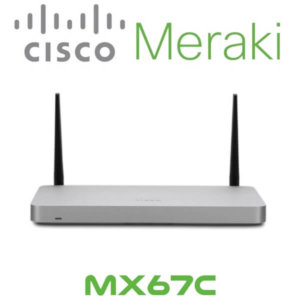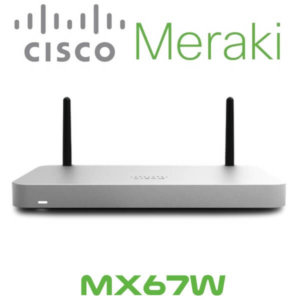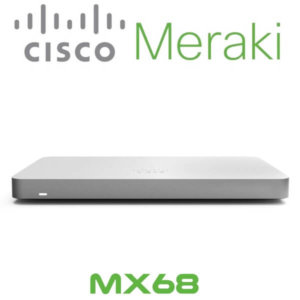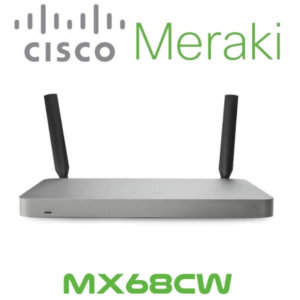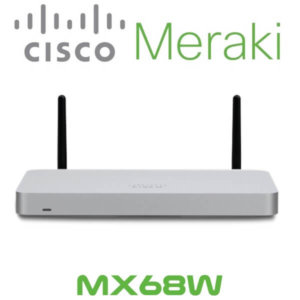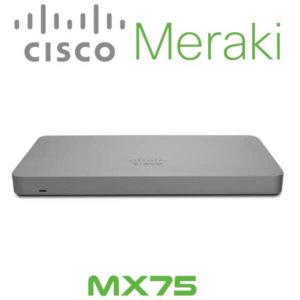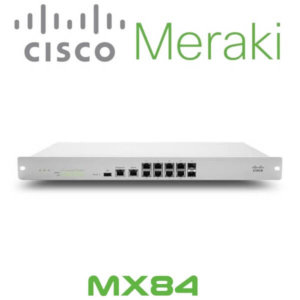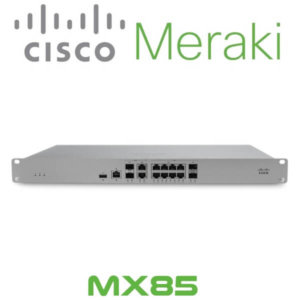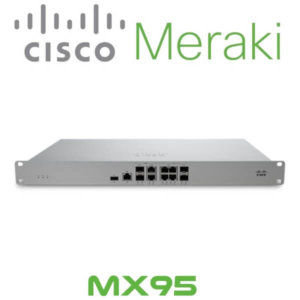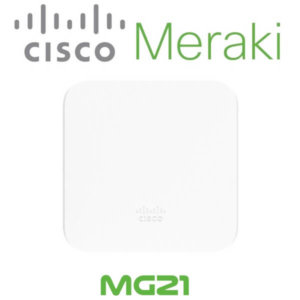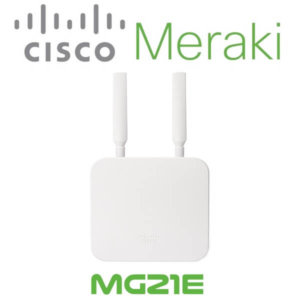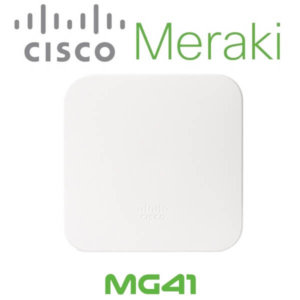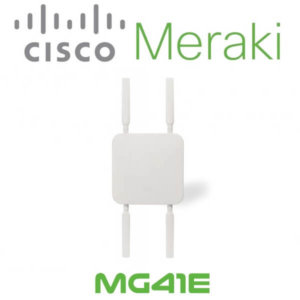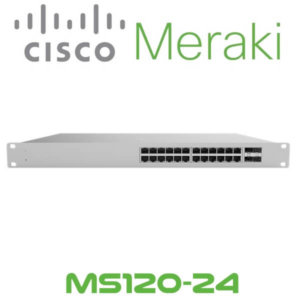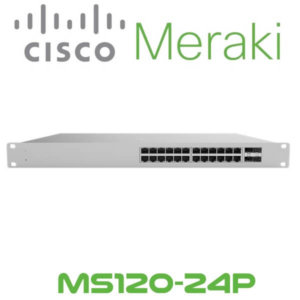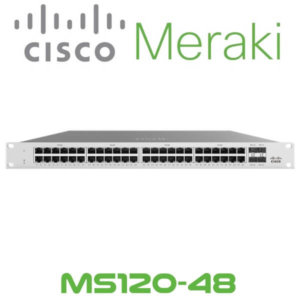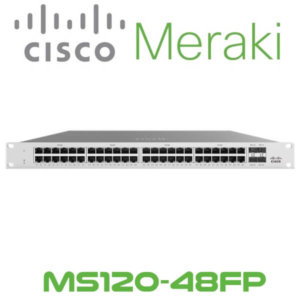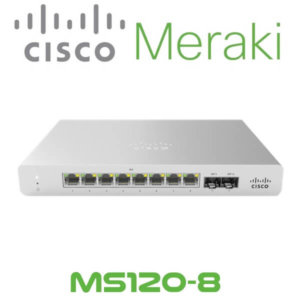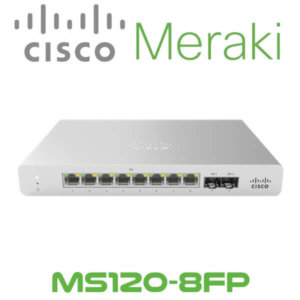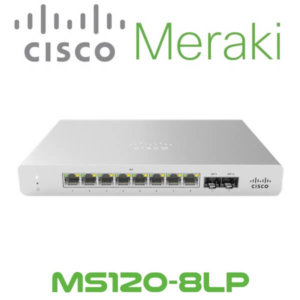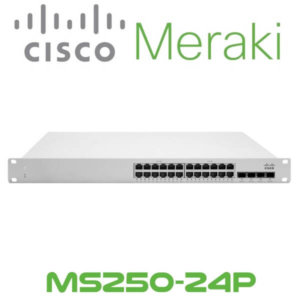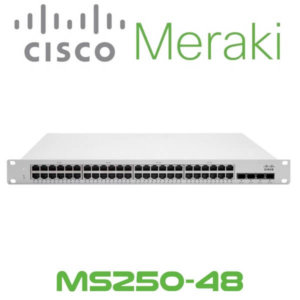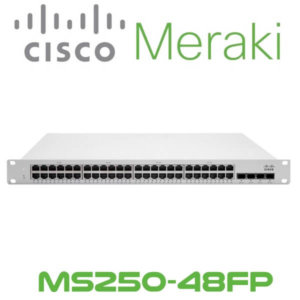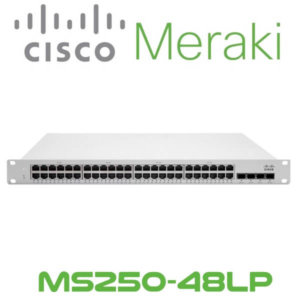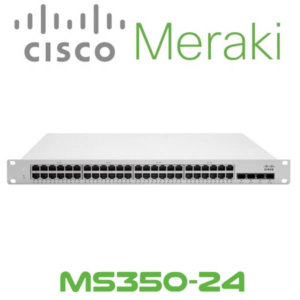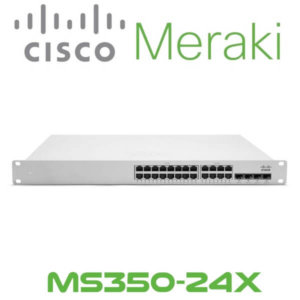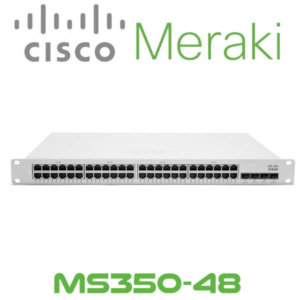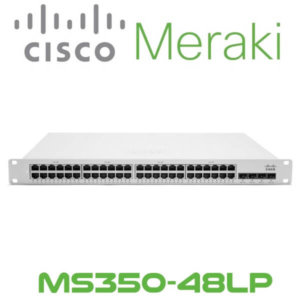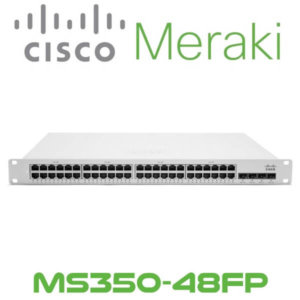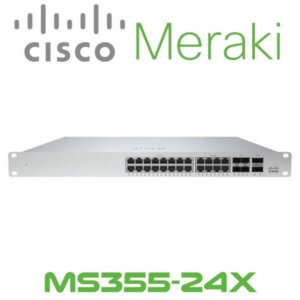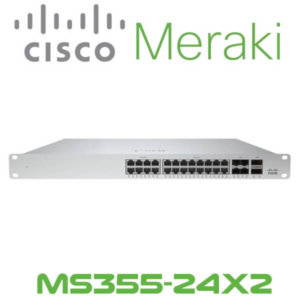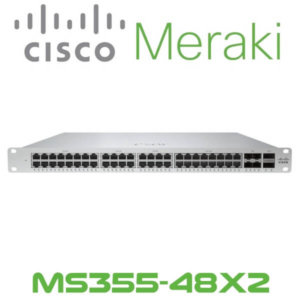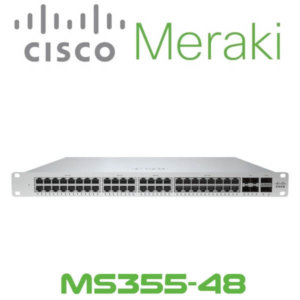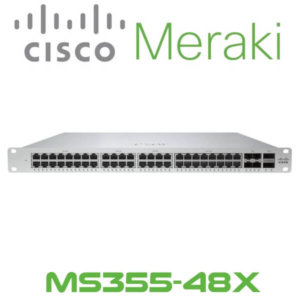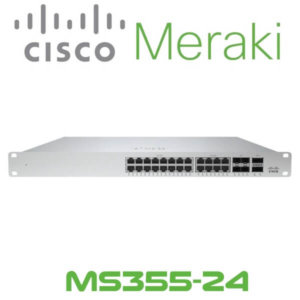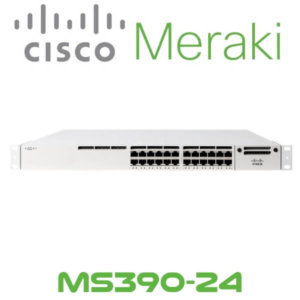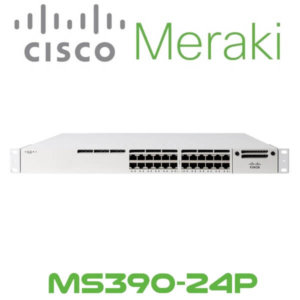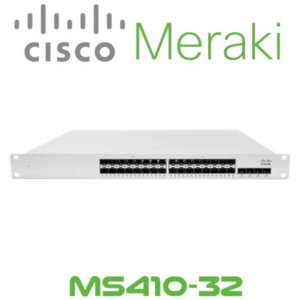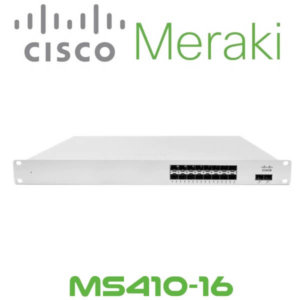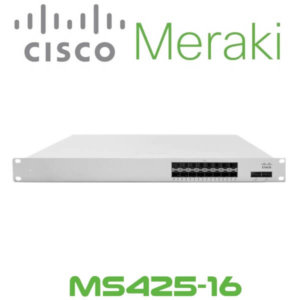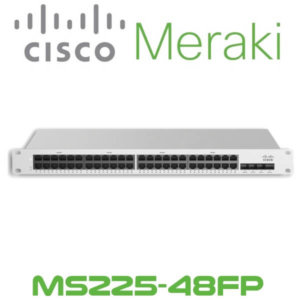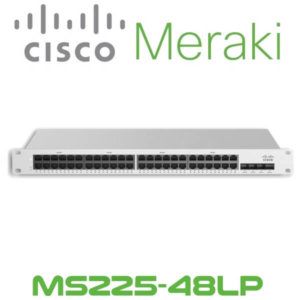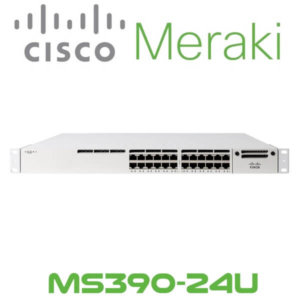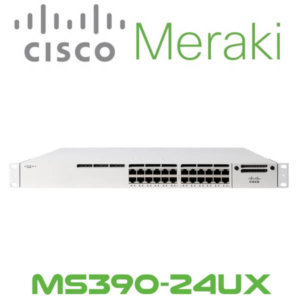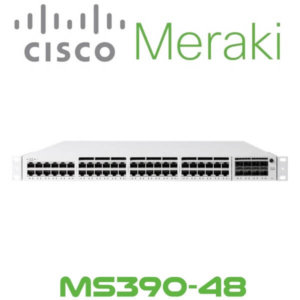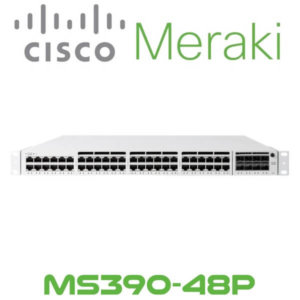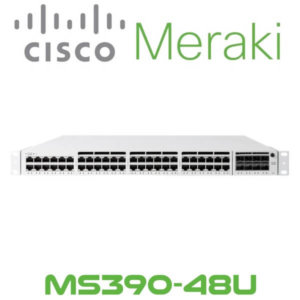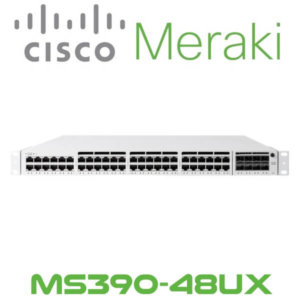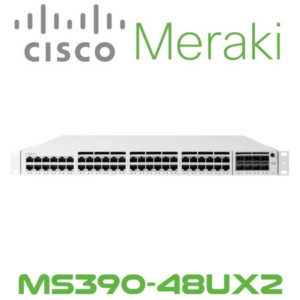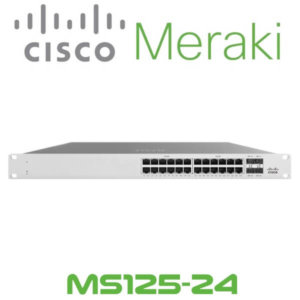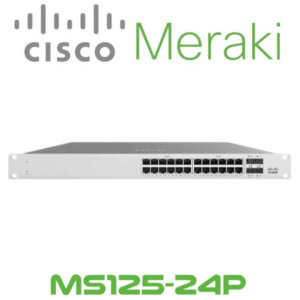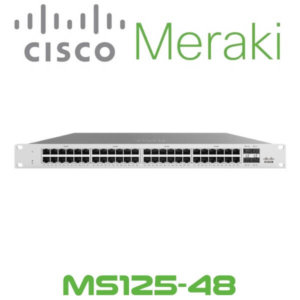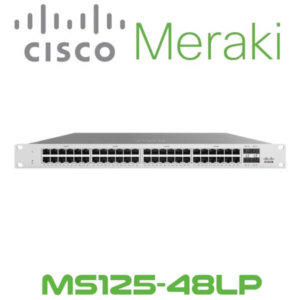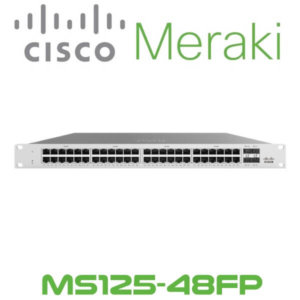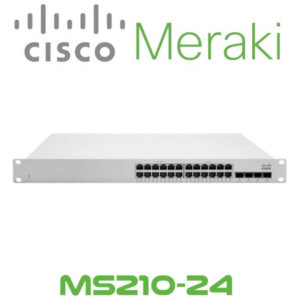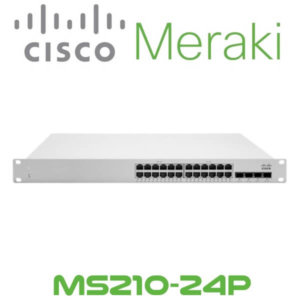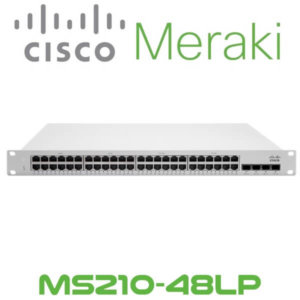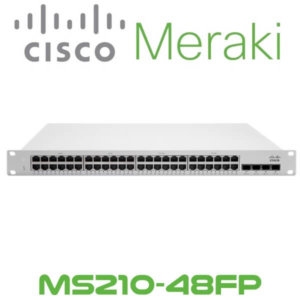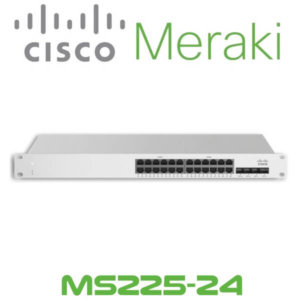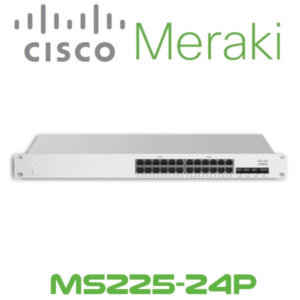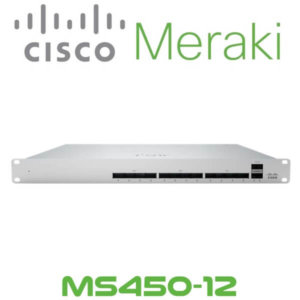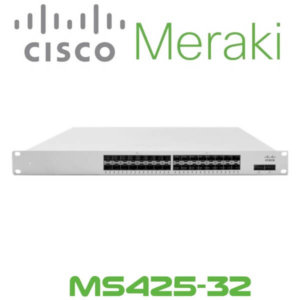Description
Meraki MS225-48 Network Switch Jeddah
The Cisco Meraki MS225-48 Jeddah is managed through an elegant, intuitive cloud interface, rather than a cryptic command line. Meraki switch, features plug and play with no complicated configuration files, or even direct physical access to the switch. Meraki’s centralized management gives administrators deep visibility into the network and how it’s used. See which switches are near capacity across hundreds of sites. Find all configuration changes made by a certain person with instant search. The Cisco Meraki MS225-48 Jeddah provide layer 2 access switching and are ideal for deploying to branch locations. With stacking capabilities and 10G SFP+ uplinks on every model, performance is guaranteed. This family also supports an optional, rack-mountable remote PSU (Cisco RPS-2300) for power redundancy requirements. Meraki Network Switches Jeddah are built from the ground up to be easy to manage without compromising any of the power and flexibility traditionally found in enterprise-class switches.
MS225-48 Features
Branch & Campus Access
- Physical stacking with support for up to 8 stack members for built-in redundancy and performance
- Quality-of-Service (QoS) to prioritize mission critical traffic such as voice and video
- Voice VLAN support for simplified VoIP deployments
- CDP, LLDP advertisement and snooping, with detailed neighbor discovery and visibility
- Port Mirroring (SPAN) support for monitoring network traffic at line rate
- IGMP Snooping to optimize network performance for multicast applications
- Link Aggregation Control Protocol (LACP) for high-capacity trunking, with Multi-chassis (MLAG) support on stacked switches
Network Security
- IEEE 802.1X, MAB, and Hybrid authentication support for wired access control with RADIUS server monitoring
- Port security and MAC whitelisting
- Change of Authorization (CoA) and RADIUS accounting support
- DHCP snooping to prevent users from adding unauthorized DHCP servers on the network
- Rapid spanning tree, BPDU guard, root guard, and other safeguards to help prevent misconfigurations and reduce convergence time
- Per port VLAN configuration
- Multiple administrative roles with sophisticated security policy management
Network Troubleshooting & Automation
- Virtual Stacking lets administrators manage up to thousands of ports in a single interface without having to physically connect stack members
- Configuration templates for rapid, zero-touch provisioning and auditing of all sites
- Network Topology for automatic and interactive network mapping
- Remote cable testing, packet capture and client discovery
- Automatic and scheduled firmware upgrades for the complete network
Converged Voice, Video and Data Environments
The Meraki MS225-48 Jeddah is designed to unify data, voice, and video onto a single IP backbone. All Meraki switches support rich quality of-service (QoS) functionality for prioritizing data, voice, and video traffic. The switches support eight class-of-service (CoS) queues on every port, enabling them to maintain end-to-end traffic prioritization. PoE models provide power VoIP telephones, IP security cameras, wireless access points (APs), and other IP devices. In addition, using CDP and LLDP, PoE power is intelligently budgeted to maximize the number of PoE clients supported. For the most power-hungry applications, support for Cisco PoE is also available. The Meraki MC products work flawlessly with Meraki switches, and create a unique and powerful experience to installing, supporting and troubleshooting VoIP technology
Application Layer Visibility
Meraki is the only switch to include integrated Layer 7 fingerprinting. Identify hundreds of applications from business apps to BitTorrent and YouTube. User fingerprinting with Google-like search allows administrators to easily identify and control individual users, PCs, iMacs, iPads, Androids, and other devices. This unprecedented visibility allows optimizing of network resources and maintaining optimal network performance.
Unified Software Architecture
Meraki switches run the same Meraki operating system used by all of Meraki’s products. The use of a common operating system allows Meraki to deliver a consistent experience across all product lines. When connected, MS250 switches automatically connect to the Meraki cloud, download configuration, and join the appropriate network. If new firmware is required, this is retrieved by the switch and updated automatically. This ensures the network is kept up-to date with bug fixes, security updates, and new features.
MS225-48 Specifications
| Interface |
|
| Management |
|
| Remote diagnostics |
|
| Flexible stacking |
|
| Ethernet switching capabilities |
|
| Security |
|
| Power over Ethernet |
|
| Performance |
|
| Layer 3 |
|
| Power |
|



